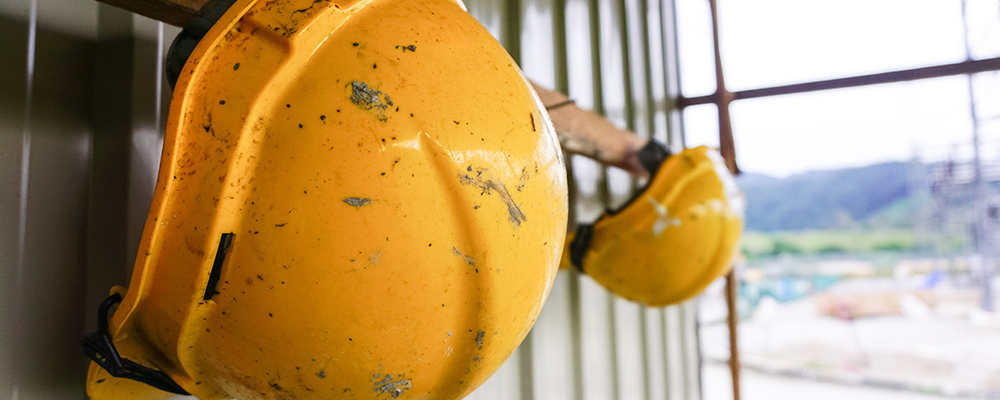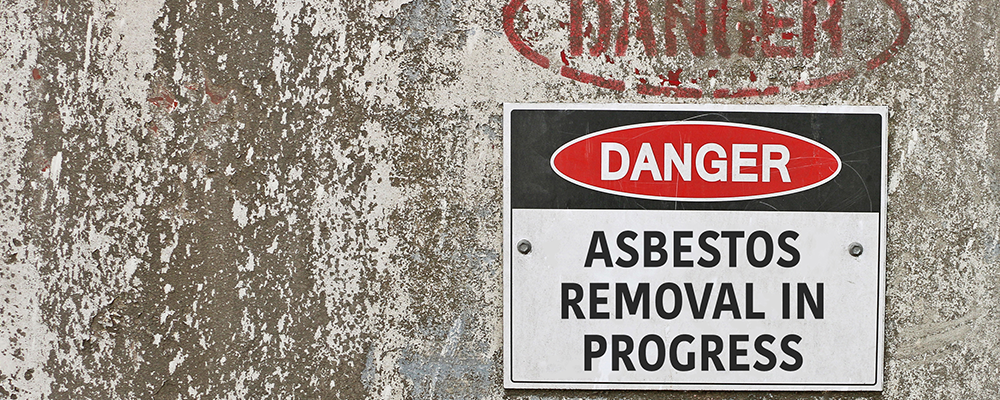
During a recent trip to London Zoo I wandered past a sign advising against “feeding the lions”. Fair enough, I thought, I’ll keep the king of the jungle at arms’ length. Now, had the sign warned against feeding seagulls, my response might have been different.
But should it be? Members of the public in one town encountered a similar sign on their travels. In this instance, the town council urged them: “Please do not feed the gulls. In the interests of health and safety please do not encourage these birds. They may look pretty but can be very aggressive and could easily hurt people, especially small children. Thank you for your co-operation.”
The question remains therefore as to whether such signage is a reasonable use of health and safety. Cut to the Health and Safety Executive’s myth buster panel.
Who you gonna call? Safety mythbusters
The Health and Safety Executive’s myth panel was quickly on the case. Gull feeding was quickly ascertained to not be an occupational safety and health issue. Even so, the panel found that the council did take “reasonable steps” to protect the public.
Deterring people from feeding seagulls, concludes the panel, is in the “interests of public safety and health”.
“They scavenge food from a number of sources which may present public health risks and can be aggressive. The panel does not consider this notice to be an unreasonable use of the term ‘health and safety’ because it did not imply there was any form of regulation in place.”
So what do you think? Next time you’re about to toss a chip in the direction of a seagull, will you think twice?

Process good onsite safety with online health and safety courses from iLearn. Online process safety training provides operators with a detailed introduction to process safety.
This online health and safety process safety course:
- Only takes around 40 minutes to complete
- Can be run directly from your site saving you time and money
- Supports the registration of as many operators as you require
- Enables site managers to track your operators’ course progress
Online health and safety training video
Watch the online health and safety training process safety video:
Start online health and safety training
Safety never sleeps and neither does iLearn. With question sets, videos and engaging visuals designed by leading process safety experts, iLearn makes training a productively fun experience for you and your staff.
Take the pain out of the way you train. Don’t take workers offsite, take them to the iLearn site.
[cta_button]Tell me more about online process safety training[/cta_button]

RE: Open health and safety letter to Batman
Dear Batman,
At Reynolds Training, we’re all about health and safety. As such, we’d like to take a moment to thank you for your civic duty in protecting the health of our citizens. Thankyou Batman, thankyou indeed.
Be that as it may, Caped Crusader, we’ve got a bone to pick with you. When battling the demons of the night, you seem averse to good personal protective equipment practice. Sure, when you’re cracking a riddle or fighting a penguin, you need to think on your feet.
But workplace complacency around ppe can be equally, if not more so, dangerous than the foes you fight. Take Mr Freeze, for instance. When engaged in cold-blooded battle, Batman, ask yourself this: am I wearing the right ppe to work in a cold room environment? Well, are you?
Freeze, for all of his evil-doings, is in fact kitted out in a protective cryogenic suit. If the villain of this piece is personal protective equipment compliant, then surely our heroic winged protector should be too?
Holy golden personal protective equipment
Batman, let us summarise. You are a role model to workers around the world. We therefore implore you to clip the tools of personal protective equipment to your batbelt. Be our heroic winged protector and safety role model. Is that too much to ask?
Kind regards
Reynolds Training Services

The US Chemical Safety Board has released a new video safety message on the 30th Anniversary of the fatal accident in Bhopal, India, that claimed the lives of thousands of people.
The video, entitled ‘Reflections on Bhopal After Thirty Years’, warns that more must be done to improve process safety regulations in the US to prevent future industrial accidents.
“Process safety management regulations are in need of reform,” CSB chairperson, Rafael Moure-Eraso, says in the video. “Since Bhopal, both industry and government have increased their efforts to prevent major chemical accidents. But multiple CSB investigations show that much more needs to be done to assure that future tragedies will be avoided.”
Safety message: play video
In the video, the CSB chronicles the events of December 2nd, 1984, in Bhopal. An estimated 3,800 are said to have died immediately, with tens of thousands left injured. The following years have claimed the lives of thousands of others from toxic gas-related illnesses.

The US Chemical Safety Board has identified the modernisation of process safety management regulations as its second ‘Most Wanted Safety Improvement’.
Implementing federal and California state recommendations, advises the CSB, will result in significant improvements to petroleum refinery safety across the United States.
CSB chairperson, Dr Rafael Moure-Eraso, said: “I see this as an important opportunity to advance national process safety management reform by advocating for this issue as part of the board’s Most Wanted Chemical Safety Improvements Program.”
Process safety, notes the agency, has improved over the past two decades. Even so, many CBS recommendations put forward during that time to the Occupational Safety and Health Administration and the Environmental Protection Agency “have not been fully implemented”.
Dr Moure-Eraso expressed “hope” that the addition of process safety management to the CSB’s Most Wanted Safety Improvement list would stimulate regulatory actions to “help prevent future catastrophic accidents”.
“The CSB has a statutory, Congressionally mandated task to address the sufficiency of OSHA and EPA regulations. That is a key obligation of the CSB, and I intend to continue pursuing this mandate vigorously.”
Process safety management recommendations
To improve process safety management, the CSB recommends that OSHA:
- Expands its rules coverage to include the oil and gas exploration and production sector
- Expands its rules coverage to include reactive chemical hazards
Introduces additional management system elements which include the use of leading and lagging indicators to drive process safety performance and provide stop work authority to employees
- Updates existing Process Hazard Analysis requirements to include the documented use of inherently safer systems, hierarchy of controls, damage mechanism hazard reviews and sufficient and adequate safeguards
- Develops more explicit requirements for facility/process siting and human factors. These should factor in fatigue
To improve risk management, the CSB recommends that EPA:
- Expands its rules coverage to include reactive chemicals, high and/or low explosives and ammonium nitrate as regulated substances. It should also change enforcement policies for retail facilities
- Enhances development and reporting of worst case and alternative release scenarios
- Introduces new prevention programme requirements. These should include automated detection and monitoring, contractor selection and oversight, public disclosure of information, and, in the case of petroleum refineries, attributes of goal-setting regulatory approaches
CSB board member, Mark Griffon, explained how agency investigations into large-scale incidents had informed the detail of recommendations.
“Modernising process safety management is an issue rooted in critical safety recommendations made over the last two decades to prevent recurrence of catastrophic industrial accidents,” said Mr Griffon. “Recent activities have provided the board with a unique opportunity to advocate for these much needed reforms.”
View the full list of process safety management recommendations
More about the Chemical Safety Board
The US Chemical Safety Board is an independent federal agency tasked with the prime objective of investigating industrial chemical accidents.
Whilst the Board does not issue citations or fines, it is responsible for making safety recommendations to plants, industry organisations, labour groups and regulatory agencies such as OSHA and EPA.

Conveniently top up your site’s safety tank with iLearn’s online health and safety training Tank Dipping Operations course.
With recent disasters such as Buncefield imprinted in the bulk liquid storage landscape, tank dipping safety has never been more important.
Simply turn on the computer, log in, open your course and learn. Successful candidates will be fuelled with knowledge about hazard awareness, associated controls and the process steps required for tank dipping operations.
Online health and safety course video
Watch the online health and safety course tank dipping video:
Start online health and safety training
Safety never sleeps and neither does iLearn. Train when you want, where you want and at 80% less costs than those associated with face to face delivery.
Take the pain out of the way you train. Don’t take workers offsite, take them to the iLearn site.
[cta_button]Tell me more about online health and safety courses[/cta_button]

New research suggests that concerns over health and safety are triggering a decline in the number of students partaking in foreign exchange trips.
The British Council study attributes this decrease as driving a national “crisis” in the number of schoolchildren acquiring languages such as French, German and Spanish to a high standard.
“For many of us, that first school exchange trip was a real ‘light bulb moment’ that got us excited about learning a language and understanding another culture,” Vicky Gough, the Council’s schools adviser, said in comments to the Telegraph.
The British Council contacted 450 school leaders in Britain as part of the research. Headteachers highlighted health and safety concerns as a top reason for veering away from exchange visits. This was followed by fears that students would miss out on too much valuable lesson time.
Ms Gough added: “It’s a shame that these exchanges have fallen victim to things like safety concerns – which can actually be easily remedied with the right steps. As we seek to tackle a national language crisis and a lack of international skills among young people entering the world of work, reviving school exchanges is vital.”
“Common sense” approach to health and safety
Schools Minister, Nick Gibb, cast a questionmark over the Council’s research, urging schools to adopt a “common sense” approach to health and safety.
“Learning a language is hugely important in a great trading nation like Britain and state schools should not be put off from sending young people on exchange programmes by an over-interpretation of health and safety regulations,” said Mr Gibb.
“Common sense should be the driving force and I want to see as many state school pupils on exchange visits as we see in the independent sector.”
The British Council is launching a campaign to help young persons gain international experiences. Schools will be able to access a series of free resources to help them set up exchanges, whilst taking into account child protection rules and risk assessment exercises.

Choo choo. All aboard the health and safety express. Like a train on a track, coffee and travel go hand in hand. The question it would seem, however, is just whose hands should the coffee go in: the travellers’ or trolley attendants’?
One train passenger encountered this very conundrum during a recent trip. The traveller was positioned in a window seat – a fellow passenger perched next to them. A passing trolley attendant stopped and, upon request, poured a coffee, placing a lid on the insulated cup.
The journey quickly hit the buffers when the enquirer reached out to take the cup. According to the attendant, it was their duty to place said coffee on the table. The reason? Health and safety.
Regulations, he explained, compelled such actions.
Health and safety mythbusters
The Health and Safety Executive’s myth panel was quickly on the case. As it turns out, there is no specific health and safety regulation which dictates that hot drinks must be placed directly onto passengers’ tables.
The measure, the panel found, was a policy decision taken by the train operator to reduce the risk of scalding. Upon reviewing the system, the myth panel notes that there has been a reduction in scalding incidents on trains as of late.
This, coupled with a rising trend in passenger numbers, suggests that such “policies are reasonable and can have a positive impact”.
Case closed.

Health and safety training with Reynolds Training Services is the bringer of industrial strength levels of compliance to high hazard sites and workplaces.
Accessing our health and safety services is easy:
- Attend training at CATCH in Stallingborough
- We’ll bring the safety party direct to your site
- Put your operators through their paces with eLearning
Training packages are accredited by NEBOSH, PAAVQ-SET, IOSH and CIEH and, where relevant, bespoke solutions can be tailored around the specific needs of your workplace.
Health and safety training course guide
Flick through, download, print and share our updated health and safety course guide to find out more.
Got a question?
Okay, no problem. Make contact and your dedicated safety consultant will get right back to you.
[cta_button]Make contact[/cta_button]

The Health and Safety Executive has launched a web app designed to help safeguard tradespeople against the risk of asbestos.
Asbestos is still present in millions of homes and buildings. When disturbed or damaged, dangerous fibres are released into the air. If inhaled, asbestos can prove lethal.
The free web app, which stands centre stage of the Beware Asbestos campaign, works on
- Smartphones
- Tablets
- Computers
The simple, practical advice for those working with asbestos complements existing HSE guidance.
The Beware Asbestos campaign, which was launched on 9th October, will run until March 2015.
[cta_button]Find out more about working safely here[/cta_button]












